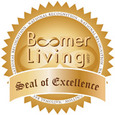By: Sue Susskind
Many individuals are finding themselves stepping into the role of caregivers for aging loved ones. This task becomes even more daunting when the individual in need of your care lives a significant distance away from you. It is difficult enough to juggle responsibilities that come from work and your own immediate family, and then trying to bridge the gap to assist with a distant loved one in need can sometimes become physically and emotionally overwhelming. It is easy to become frustrated when the demands become so great, but here are some important tips that may help when you find yourself in this position.
The first step you need to take is to decide exactly what your loved ones actual needs are. Gather other family members and friends together when having this discussion, as they may be able to provide vital information, especially if they live closer than you do. Talk to the professionals involved in the care of your loved one, such as doctors, social workers, and physical therapists. By gathering this information, you will be able to have a clearer picture of what the true needs are and what needs to be done to address them. It is also important to let this group of people know that you will need to enlist their help to ensure that your loved one receives the best care possible. It may sometimes become necessary to approach a church or synagogue, organization, or home health company within the community to help in providing care.
It is essential to make sure that anyone involved in providing care has all of the information about your loved one that they need. This includes, but is not limited to, their likes and dislikes, dietary restrictions, allergies, list of medications, emergency contact numbers and any others pertinent pieces of information. It is advisable to keep this information in a binder in the care recipient’s home, so that anyone involved in providing care has access to it, especially if someone has to substitute at the last minute. You can also include in this binder, important documents such as a DNR (do not resuscitate order), a living will, a copy of insurance cards or power of attorney papers.
Have a plan in place for emergencies. No matter how well you plan, or how good the system you have in place is, emergencies will happen. Have a section in the binder entitled emergency information. Included in this section should be items such as a list of medications, any pertinent medical information, allergies, emergency contact numbers, and the address of the person receiving care in case that information needs to be provided.
Lastly, always remember whenever possible, to include the person who is to receive the care in many of the discussions. It is important that they feel they are part of the decisions being made that are going to affect them. It is hard enough for them to adjust to the fact that they need help at all, but by including them, they feel involved in developing the plan and will be more accepting of it.
You may leave your comments for Sue below or email her at ssusskind@boomer-living.com
Tags: contact numbers, emergency contact, immediate family, vital information
Boomer-Living.com is a unique and innovative internet resource whose goal is to be the most trusted and reliable internet destination for people of the Baby Boomer Generation.
The objective of Boomer-Living® is to "MAKE A DIFFERENCE" by offering valuable information, guidance, tools, and tips, as well as services and products, designed to improve the quality of life for all Baby Boomers.
Boomer-Living.com promotes and highlights the rich and rewarding possibilities available to all members of the Baby Boomer Generation, while strongly supporting the concept of lifelong learning, personal mastery, and self-fulfillment. Join us as we explore the issues, the challenges, and help seize the opportunities facing baby boomers in the 21st Century. www.Boomer-Living.com
Additional Resources covering Baby Boomers can be found at:
Website Directory for Baby Boomers
Articles on Baby Boomers
Products for Baby Boomers
Discussion Board
Boomer Living at Boomer-living.com, the Official Guide To Baby Boomers

Post new comment
Please Register or Login to post new comment.